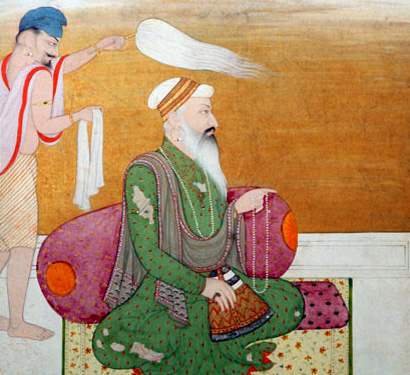WHO IS GURU RAM DAS?
Guru Ram Das (1534-1581) is the patron and titular saint of our charity. From the age of seven, he was an orphan and, later in his life, became a celebrated devotional poet, musician and spiritual leader in mid-16th century Northern India.
He impressed his teacher, Guru Amar Das, by his humility and dedicated selfless service to the community, so that Guru Amar Das not only married his dauhgter to him but also made him his successor in leadership of the community.
For us, Guru Ram Das manifests and exemplifies the spirit of equal rights for all human beings and selfless service to those most in need, an inspiration that guides us through the challenge and joy of our mission.





